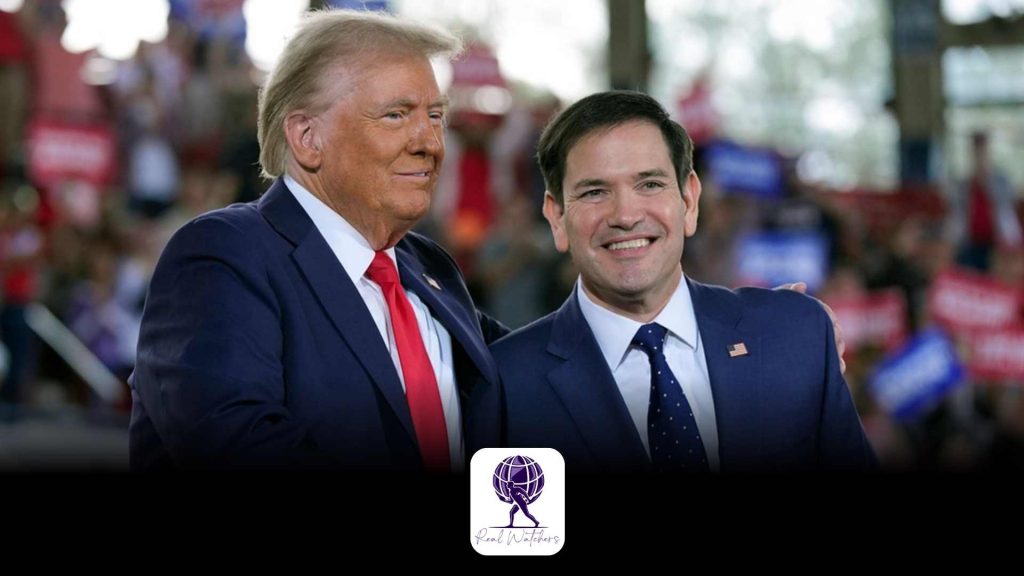Sources indicated on Monday that Donald Trump will likely select U.S. Senator Marco Rubio as his secretary of state. If confirmed, the Florida-born politician would make history as the first Latino to hold the position of America’s top diplomat when the Republican president-elect assumes office in January.
Rubio emerged as a prominent figure on Trump’s shortlist for secretary of state, known for his strong stance on foreign policy. Over the years, he has consistently pushed for a robust approach to dealing with America’s geopolitical adversaries, notably China, Iran, and Cuba.
In recent years, he has adjusted some of his positions to reflect Trump’s perspectives more closely. The president-elect has criticized previous U.S. presidents for their roles in costly and ineffective military engagements, advocating for a more measured approach to foreign policy.
Despite the unpredictability that often characterizes Trump, sources indicate that he decided on his selection as of Monday. These sources, who spoke on the condition of anonymity to share details of private discussions, suggest a level of finality in his choice.
Requests for comment from Trump and Rubio representatives went unanswered.
The incoming administration faces a global landscape that is increasingly volatile and difficult compared to the conditions in 2017 when Trump assumed the presidency. Ongoing conflicts in Ukraine and the Middle East, coupled with China‘s growing alignment with adversaries such as Russia and Iran, present significant challenges ahead.
The Ukraine crisis is set to be a prominent focus for Rubio in the coming discussions.
In recent interviews, Rubio, 53, has emphasized that Ukraine should pursue a negotiated settlement with Russia instead of concentrating solely on reclaiming all territory lost to Russia over the past decade. In April, he joined 14 other Republican senators in opposing a $95 billion military aid package for Ukraine.
Though not the most isolationist candidate, Rubio represents a significant shift in the Republican Party’s foreign policy perspective as influenced by Trump.
Once characterized by a strong advocacy for military intervention and an assertive foreign policy, many of Trump’s allies have shifted their stance to restraint. This change is particularly evident in Europe, where many Republicans express concerns that U.S. allies are not contributing adequately to defense expenditures.
In a statement to NBC in September, Rubio expressed his stance on the ongoing conflict, saying, “I’m not on Russia’s side — but unfortunately, the reality of it is that the way the war in Ukraine is going to end is with a negotiated settlement.”
Rubio’s selection carries both domestic and international implications.
In the Nov. 5 election, Trump secured a victory over Democratic Vice President Kamala Harris, significantly influenced by his appeal to many Latino voters. Historically, this demographic has leaned heavily towards Democrats in past elections, but recent trends indicate a shift, with an increasing number of Latinos casting their ballots for Republican candidates.
Trump’s decision to appoint Rubio to a significant policy position could solidify Latino voters’ electoral support, signaling their inclusion in the upper echelons of his administration.
Should the confirmation proceed, Rubio is expected to prioritize Latin America to a greater extent than any of his predecessors in the role of secretary of state, according to Mauricio Claver-Carone, a close associate of Rubio, who previously served as president of the Inter-American Development Bank and held a position on the National Security Council focused on Latin America during the initial Trump administration.
Latin America is poised to take center stage in the historical narrative of any U.S. presidency. This moment is significant in history. “There is no other way to express it,” stated Claver-Carone.
Rubio emerged as one of the final three candidates for Trump’s vice-presidential nomination. The president-elect has made a significant decision by selecting U.S. Senator JD Vance of Ohio, a prominent figure on the hard right known for his distinct isolationist stance on foreign policy.
Trump’s decision to select Rubio will likely raise eyebrows among some of his supporters, particularly given Rubio’s recent solid foreign policy stances that appear to clash with Trump’s views.
Throughout Trump’s presidency from 2017 to 2021, Rubio played a significant role by co-sponsoring legislation to complicate the process for Trump to exit the North Atlantic Treaty Organization. This proposed measure mandated that any withdrawal would require the approval of two-thirds of the Senate.
For years, Trump has strongly criticized NATO member countries that have not met their military spending commitments. During his campaign, he made it clear that he would not only withhold defense from nations deemed “delinquent” in their funding but would also suggest that Russia should feel free to act as it wishes towards them.
Senator Rubio has established himself as a prominent critic of China, earning sanctions from Beijing in 2020 due to his position on the democratic protests in Hong Kong.
In 2019, Rubio urged the Treasury Department to initiate a national security review concerning the acquisition of Musical.ly by the widely used Chinese social media platform TikTok. This call to action led to an investigation and a subsequent troubled divestment order.
As the leading Republican on the Senate Intelligence Committee, he has intensified scrutiny of the Biden administration, urging it to halt all sales to Huawei following the release of a new laptop by the sanctioned Chinese tech firm, which features an Intel AI processor chip.
Rubio, whose grandfather escaped Cuba in 1962, stands as a vocal critic of efforts to normalize relations with the Cuban government, a stance that aligns with Trump’s views.
The chair of the House subcommittee responsible for Latin American issues, he has established himself as a vocal and staunch opponent of Nicolas Maduro’s administration in Venezuela.








